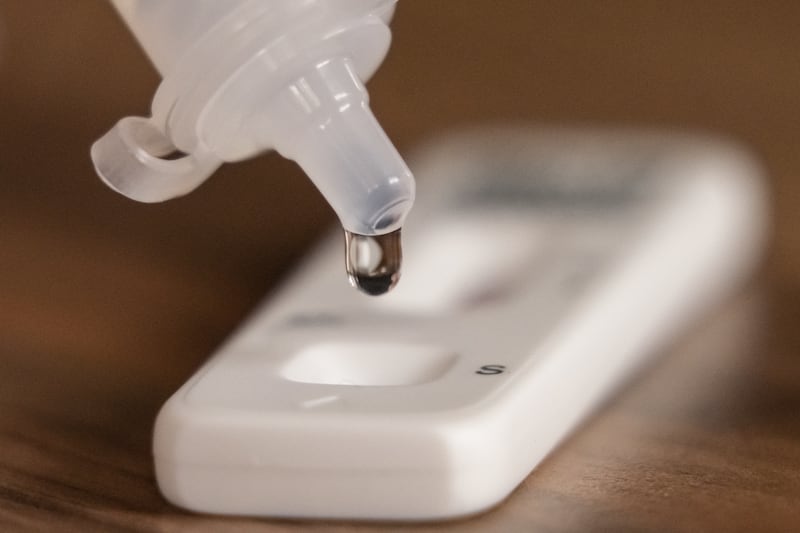Talking therapies and physical and mental rehabilitation “probably improve symptoms of long Covid”, a new study suggests.
But “no compelling evidence supported the effectiveness” of other treatments including certain drugs, dietary supplements or oxygen therapy, academics said.
An international team of researchers said that current guidance on treating long Covid is “limited” and often based on consensus among medics rather than on systematic reviews of data.
So they set out to summarise all of the available evidence examining treatments for long Covid.
They examined 24 trials involving 3,695 patients which investigated how well various long Covid treatments worked.
After pooling the data, they concluded: “Moderate certainty evidence suggests that a programme of CBT (cognitive behavioural therapy) probably reduces fatigue and improves cognitive function in patients with long Covid, and a programme of physical and mental health rehabilitation probably increases the proportion of patients who experience recovery or important improvements.”
Writing in The BMJ, the researchers, led by academics from McMaster University in Ontario, Canada, point out that there may be resistance to these treatments.
“Both CBT and physical and mental health rehabilitation require active patient engagement, which may be challenging owing to some patient groups expressing concerns about the safety and efficacy of these approaches and that the effectiveness of CBT and rehabilitation implies that long Covid is not ‘real’ but ‘psychological’,” they wrote.
Dr Daniel Munblit, from the Division of Care in Long Term Conditions at King’s College London and the Department of Infectious Disease, Imperial College London, said the research “underscores the importance of addressing patient concerns and scepticism surrounding CBT and rehabilitation, particularly the misconception that their effectiveness implies a purely ‘psychological’ basis for long Covid.
“Open communication and patient education are absolutely critical for ensuring treatment acceptance and adherence.”
He added: “Most importantly, the research did not find compelling evidence to support other interventions, including various medications (vortioxetine, leronlimab), dietary supplements (synbiotics, coenzyme Q10), and other therapies (amygdala and insula retraining, transcranial direct current stimulation, hyperbaric oxygen).”
Dr Margaret O’Hara, founding trustee at the charity Long Covid Support, said: “This study has shown that interventions such as CBT have only modest effects for some people with long Covid.
“Long Covid ruins lives and we need highly effective treatments which will allow people to get their lives back, not generalised methods that may take the edge off but still leave people disabled.
“It is now time to invest seriously in research on the underlying mechanisms so that effective disease modifying interventions can be developed.”
Meanwhile, a separate study, published in the Journal of the Royal Society of Medicine, found that long Covid can double a patient’s cost to the health service.
Researchers said that people with ongoing symptoms after Covid-19 use the health service “significantly more” than they did before their diagnosis.
This can include more trips to the GP and an increased number of hospital visits – including seeking more emergency care.
Experts highlight how in the UK alone, some 1.9 million people are suffering with long Covid – defined as such if a patient is still having persistent symptoms at least four weeks after a Covid infection.
Members of the National Academies of Sciences, Engineering, and Medicine (@theNASEM) describe the process and rationale for the development of the 2024 definition of persistent Covid-19 symptoms (long Covid). Read the Sounding Board article: https://t.co/bT4lyV21vt pic.twitter.com/aTcK4f72xs
— NEJM (@NEJM) August 25, 2024
Symptoms can include fatigue; brain fog, difficulty breathing, heart palpitations; dizziness as well as joint pain and muscle aches.
The researchers say that long Covid is a “complex condition” affecting multiple parts of the body.
They point out health systems around the world have been “under strain” from long Covid so set out to examine the exact impact on services in the UK.
They analysed data on how 280,000 people with long Covid used services before and after their diagnosis.
People with Long Covid rack up costs to the health service of an average of £704.80 each year in the UK, experts found.
But before their diagnosis their healthcare needs only cost the NHS around £293.60 per year.
The joint first author of the study, Dr Yi Mu from the Institute of Health Informatics at University College London, said: “Long Covid is a debilitating disease for patients, presenting in a myriad of ways, with far-reaching implications for those affected.
“In this context, it is understandable that the people with Long Covid have complex healthcare needs and access services significantly more than others.
“Health systems have been under strain from the impact of Long Covid, stretching staff and infrastructure.
“Our study has quantified that cost, finding that people with Long Covid have healthcare service needs extending to GP, outpatient, inpatient and emergency departments, and that annually the median cost of this per person is more than double what it was before contracting Covid.”
Dr O’Hara added: “The costs of long Covid are not just economic due to increased healthcare utilisation and loss of workforce, the human cost of the suffering endured by those with the condition is incalculable.”









